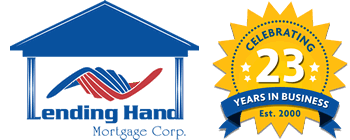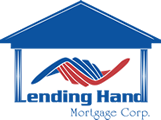What is a Reverse Mortgage
As a 62 or older homeowner, you may be able to transfer the equity in your home into cash using a reverse mortgage loan. This kind of loan lets you borrow against the equity in your home to receive a fixed monthly payment or line of credit. The payback is deferred until you move out, sell the home, become delinquent on property taxes and/or insurance, the home falls into disrepair, or you pass away. Then the house is sold by the bank and any excess after repayment if available, goes to you or your heirs.
Contact our Florida Mortgage Office
Learn more about how you could qualify for a Florida Reverse Mortgage.
Pro & Cons of a Reverse Mortgage?
A reverse mortgage can generate cash … nevertheless, it’s not necessarily the best or only way to do that. There can be high upfront costs, a reverse mortgage is usually not a great option if you’re borrowing a small amount or you plan to move in a few years.
Reverse Mortgage Requirements
There are certain requirements you must meet in order to be eligible for a reverse mortgage:
- You must be at least 62 years old.
- The home must be your primary residence.
- You must have paid off most, or all, of your traditional mortgage.
Some alternatives to a Reverse Mortgage
Refinance of Existing Mortgage
Good reasons to refinance is to lower the interest rate on your mortgage. This can save you money over the life of the loan as well as decrease the amount of your monthly payments and help you build equity in your home. Another advantage: If you refinance instead of getting a reverse mortgage, your home remains an asset for you and your heirs.
Get a Home-Equity Loan
This is basically a second mortgage. A home-equity loan lets you borrow money by using the equity in your home. It works the same way as your primary mortgage: You receive the loan as a single payment, also you cannot draw any additional funds from the house. The interest you pay on a home equity loan is generally tax deductible.
Get a Home Equity Line of Credit (HELOC)
A home equity line of credit, or HELOC, gives you the option to borrow up to your approved credit limit, on an as-needed basis. You pay interest on the entire loan amount whether you’re using the money or not. HELOCs are adjustable loans; your monthly payment will change with fluctuating interest rates. The interest is tax deductible for loan amounts.
Sell Your Home and Downsize
This option may be mostly appealing for homeowners which current residence is too big for their current needs, too costly to maintain or has relatively expensive property taxes. The money of the sale can be used to buy a smaller, more affordable home. Another alternative is renting. You’ll have extra money to save, invest or spend as needed.
Sell Your Home to Your Children
This approach is a sales-leaseback agreement, where you sell the house, then rent it back using the cash from the sale. Your children get as landlords rental income and will be able to take deductions for depreciation, real estate taxes and maintenance.
Selling to your children has tax and estate-planning ramifications. It’s important to work with a qualified tax specialist or attorney.
Reverse Mortgage Loan Requirements
A reverse mortgage can be high in upfront costs. It is usually not a great option if you’re borrowing a small amount or you plan to move in a few years. You might pay far less by taking out a home-equity line of credit. Or you may be able to generate more income by selling and moving to a less expensive place.
- You must be at least 62 years old.
- The home must be your primary residence.
- You must have paid off most, or all, of your traditional mortgage.
- FHA requires meeting with a reverse mortgage counselor
- If the home is poorly maintained, you may need to repair
What is the reverse mortgage process?
Assess your Mortgage needs
After our Lending Hand Mortgage officer is familiar with your specific situation and goals of the reverse mortgage, he determines if a reverse mortgage is a good fit for your needs.
Complete your application
… followed a counseling appointment. During your appointment, our licensed loan officer will review your application with you, and provide you with all the important information you need to set up your counseling appointment.
Appraisal of your home
An independently approved appraiser will come to you and appraises your home.
Closing and disbursement
After the loan is approved a final signing is scheduled where closing costs and the interest rate is calculated. After the closing of the loan, you have three business days to cancel. After this three-day period has passed, you will begin receiving payments according to the payment option you selected.
Repayment
No payments are made while you are living in the home.
The balance becomes due when the home is either sold, is no longer a primary residence, or the borrower passes away. As the
As the borrower, you are still responsible for taxes, insurance, and home maintenance.
In the event that the borrower passes away the home may be repaid by the sale of the home or refinancing of the existing reverse mortgage. The remaining equity belongs to the heirs of the estate.
Reverse Mortgage Interest Rates
Reverse mortgage interest rates are charged on the funds that you receive from your loan. These charges are calculated daily and added to the loan balance monthly.
The unique feature of a reverse mortgage is that interest payments on your loan are deferred to the end of the life of the loan.
Fixed Rate Reverse Mortgages
Pro
- Fixed rates are certain to remain the same for the entire loan term. You are protected if market rates rise.
Con
- Borrowers who choose a fixed rate reverse mortgage must take their funds as a lump sum, as opposed to other disbursement options offered at a variable rate.
- When taking a lump sum, borrowers who are not going to use it for a mandatory obligation, i.e. paying off an existing mortgage … You are restricted to receive only up to 60% of the principal limit of the loan. If mandatory obligations cause the 60% threshold to be exceeded, another 10% may be accessed.
- The upfront mortgage insurance premium (MIP) will increase from .5% to 2.5%.
Fixed rate reverse mortgages are normally best for borrowers who plan to use their reverse mortgage funds all at once. They will use it to pay off an existing mortgage or other debt or to make major home repairs or modifications.
Variable Rate Reverse Mortgages
Pros
- They offer more disbursement options than a fixed rate loan. Borrowers may choose between a line of credit, monthly payments, a lump sum, or a combination of the three.
- Interest is only charged on funds that have been withdrawn. This means that you will only be charged interest on the amount withdrawn.
- Unused lines of credit may also grow with time, allowing the borrower more flexibility in the amount available for them to borrow.
Cons
- You are at greater risk if interest rates rising quickly and drastically.
Understanding Reverse Mortgage Loan Closing Costs
The typical expenses associated with a reverse mortgage loan, including closing costs. While a benefit of this loan is the ability to finance many of the closing costs into the loan itself to minimize the impact of any up-front or out-of-pocket charges. It is helpful to know of all closing fees, which are include:
Mortgage Insurance Premiums (MIPs)
The mortgage insurance premium is the fee that will pay for these insurance protections.
Loan Origination Fee
This fee covers the lender’s business expenses to operate.
Lender Servicing Fee
Lenders typically receive this fee for administering the loan, monitoring taxes and insurance, and other services related to the loan.
Other Closing Costs
Certain fees are put in place for borrower protection and many fees are federally capped or strictly regulated to provide an additional level of security for the borrower.
Some fees can be waived or negotiated, and most of them can be rolled directly into the loan itself, therefore minimizing the impact of upfront, out-of-pocket expenses.
Find the right Lending Hand loan officer near you to assist you with all your lending needs.
Find an office Get PrtequalifiedWhy a Lending Hand Mortgage professional?
Lending Hand Mortgage (NMLS #373538) prides itself on providing unparalleled customer service and earning satisfied clients. Our purpose? Satisfy the mortgage needs of our customers and exceed their expectations.
We work with underwriters and loan processors from the application date until closing to gather necessary documentation and guide the file through the approval process.
Our mortgage loan originator is your main point of contact throughout the entire home loan process.
First and foremost, our loan officers are committed to a height standard of honesty and integrity.


 Some of life's hardest financial decisions include buying a home, refinancing a mortgage, or obtaining a home equity loan.
Some of life's hardest financial decisions include buying a home, refinancing a mortgage, or obtaining a home equity loan. 
